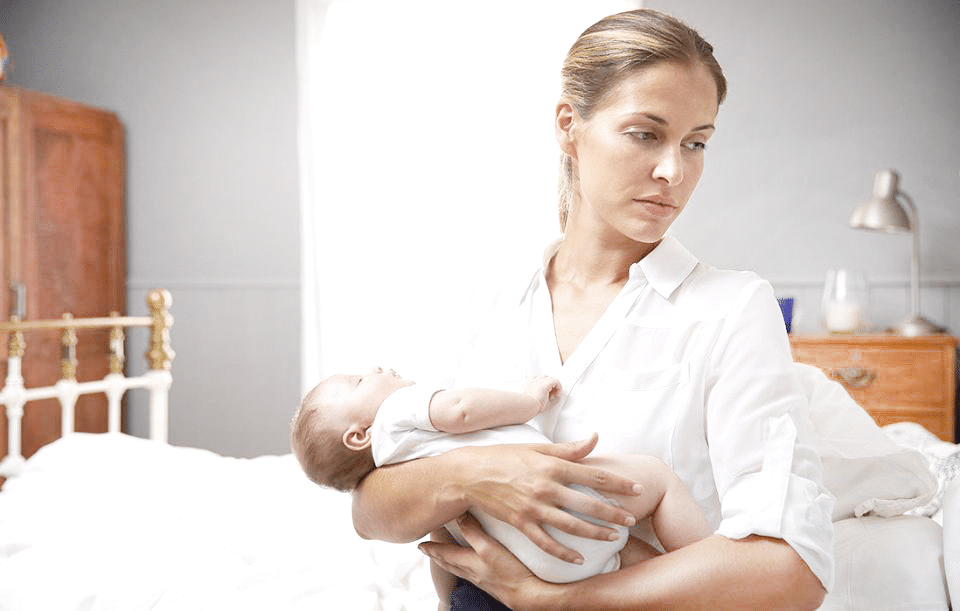Postpartum psychosis is a very serious mental illness that usually starts in the days or weeks after birth.
You may not be able to look after yourself or your baby very well. There are many different symptoms, which include:
- feeling severely depressed
- being manic – excessively energetic and talkative
- quick changes of mood
- feeling very confused
- feeling restless and agitated
- finding yourself very withdrawn
- not sleeping
- racing thoughts
- hallucinations
- delusional thoughts or beliefs
- feeling paranoid and suspicious of other people
- behavior that is out of character
- feeling suicidal
- thinking about harming yourself or your baby.
If you have postpartum psychosis you won’t necessarily experience all of these symptoms.
Postpartum psychosis is a psychiatric emergency, so you should get help as soon as you suspect you might have it. Although it can happen to any woman, even those who have not been ill before, those who have existing bipolar disorder or schizophrenia are at higher risk.
With treatment, the vast majority of women recover fully from postpartum psychosis.
How common is it?
Around one in every thousand women develops postpartum psychosis after giving birth.
What should I do?
Postpartum psychosis is an emergency. Some women become very unwell very quickly. If you suspect that you (or someone you know) may have postpartum psychosis, contact your General Doctor or your mental health team and ask to be seen the same day. Likewise, you can go immediately to A&E.
If you have an existing mental health disorder make sure everyone in your healthcare team is aware of it, especially if you have bipolar disorder or a schizoaffective disorder, which increases your risk of getting postpartum psychosis.
“When my son was just born, I developed psychosis. I heard him crying in the house even when he was out on a walk with the nanny. My husband took me to see a doctor and I was given antipsychotic medication.” —Jody, Hudson Valley NY
Risk factors for postpartum psychosis
Postpartum psychosis is not caused by anything you’ve done. Some women who have never had a mental health problem before can develop postpartum psychosis. However, you are at greater risk of getting postpartum psychosis if:
- you have had bipolar disorder
- you have had a diagnosis of schizophrenia or another psychotic illness
- a close relative has had postpartum psychosis.
Can I do anything to prevent postpartum psychosis?
If you have one of the mental health problems mentioned, be proactive and start treatment which may prevent you getting postpartum psychosis. Also, if you’re receiving treatment be sure to communicate that to your baby doctor, mid-wife and members of your birthing team.
They will also make a plan with you to make sure you stay as well as possible, and that you get help quickly if you do become unwell.
Treatment for postpartum psychosis
When symptoms are recognized, it’s essential to get treatment as soon as possible. Also, quick treatment will usually result in good recovery. Usually, treatment consists of medication and you may need to find admittance to a specialist treatment facility or hospitals with psychiatric mother and baby units so your baby can stay with you. If you are breastfeeding, talk to the doctor treating you about the risks and benefits of take medication while breastfeeding.
More information and support
Action on Postpartum Psychosis: app-network.org has information and support. Additionally, it has an online chatroom along with peer support networks.
D’Amore Healthcare specialized postpartum psychosis treatment facility for women. Located in the beach communities of southern California, our fully accredited treatment facility specializes in providing care that can fully tailor to your needs. Since we have staff available who will work hard to help you get better, you can rest assured that D’Amore Healthcare will stop at nothing to help you or someone you know overcome postpartum psychosis.
You don’t need to let mental illness control your life or the life of a loved on. Reach out to us today at 714.375.1110 to verify your insurance and get started on the road to recovery.





































